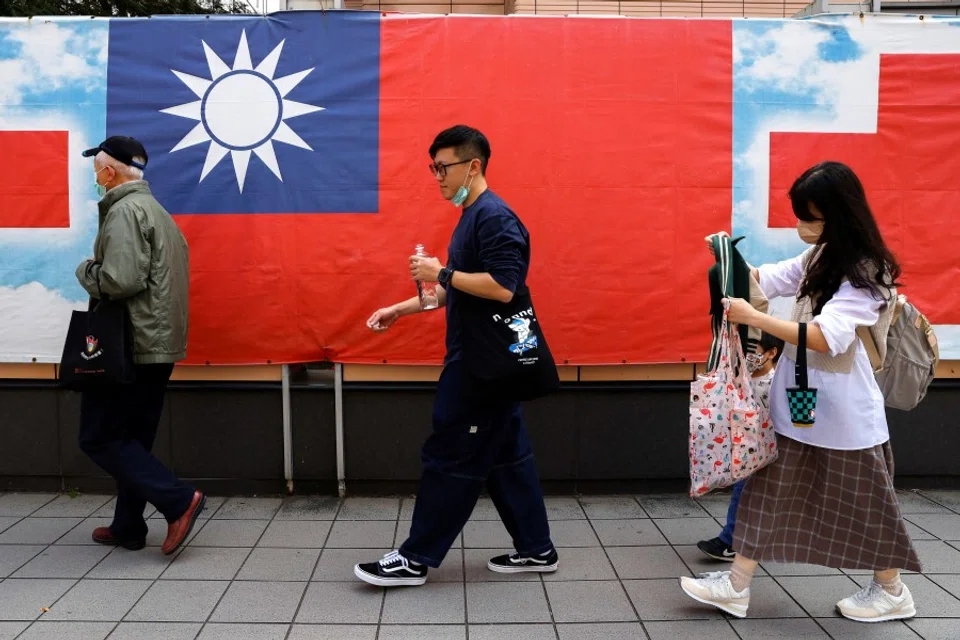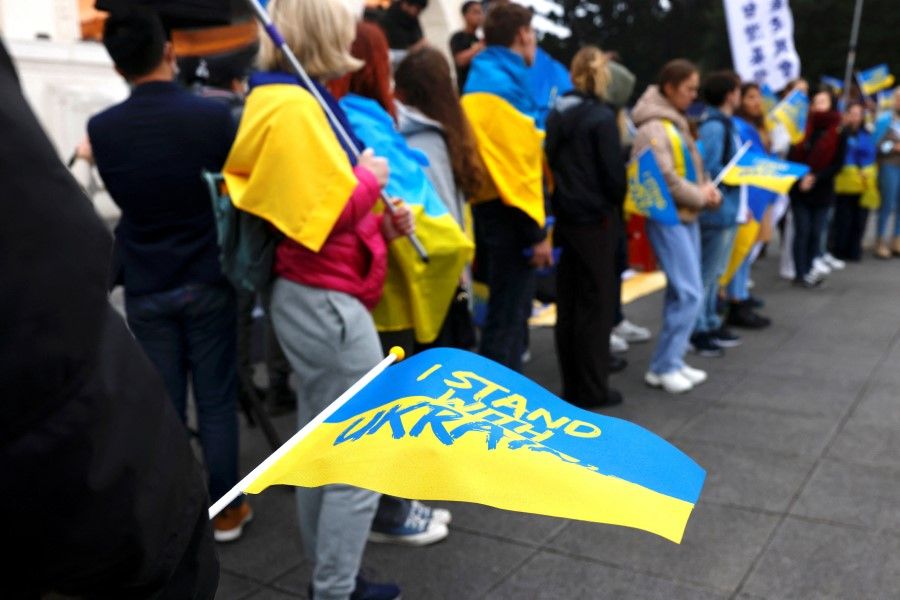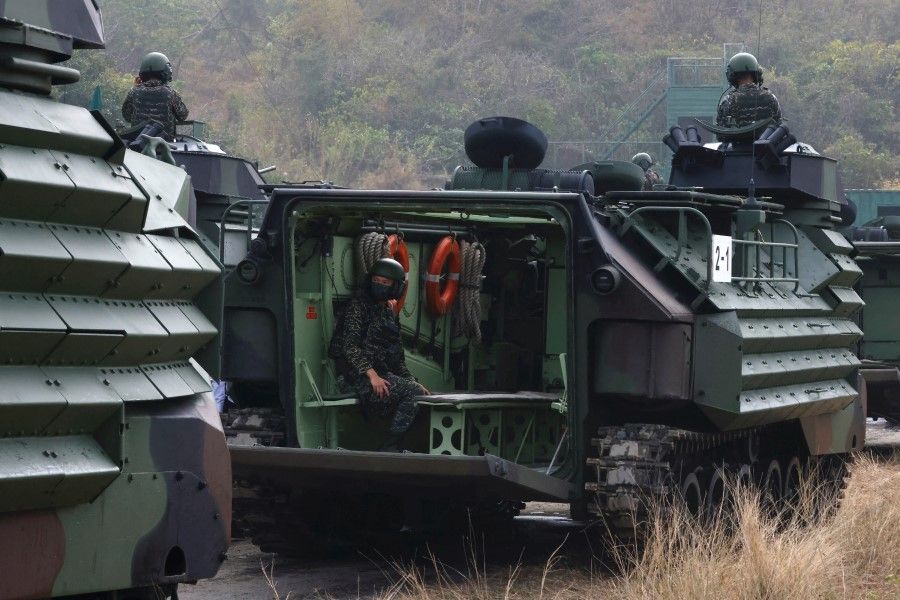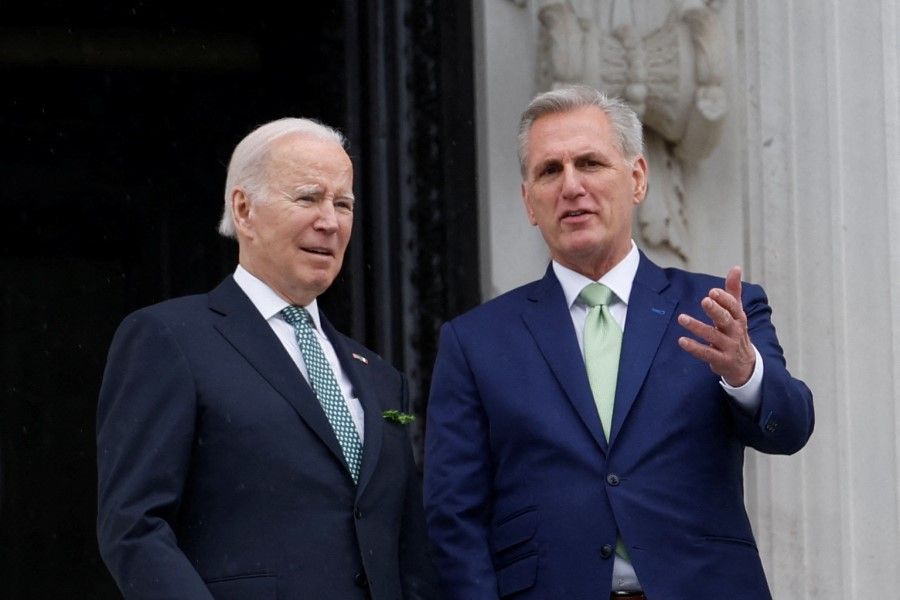'Scepticism about the US' spreading in Taiwan

In Taiwan, "scepticism about the US" is gradually spreading. The nature of this scepticism differs depending on the commentator, but the common feature is that "relying on the US will lead to a disastrous end for Taiwan".
Such scepticism shares common logic with China's criticism of the US. In Taiwan, Kuomintang (KMT)-affiliated politicians, critics and scholars are asserting the same scepticism about the US.
The scepticism itself is not new, but because the mainstream public opinion in Taiwanese society is pro-American, it has not spread widely in the past. However, it seems that the situation has changed since the end of last year, as scepticism has been featured with growing regularity in Taiwanese media and social media.
The Taiwanese television channel TVBS conducted an opinion poll on 9 February with the question: "Do you worry about Taiwan becoming a pawn used by the United States to wrestle with China?" The difference in the choice of answers was remarkably close, with 44% answering "worried", and 42% "not worried".
Long Ukraine war made Taiwanese doubt the US
The opinion poll also asked: "If House Speaker Kevin McCarthy were to visit Taiwan, would you welcome him?" The answers were 56% "welcome", and 23% "not welcome". On the surface, the Taiwanese people would welcome McCarthy's visit, but their deeper feelings might be complicated. The mood may well have changed since then House Speaker Nancy Pelosi's visit last August. There are several other polls showing that scepticism about the US is gradually spreading and has reached around 40%, if not a majority.

Has the Chinese Communist Party (CCP)'s propaganda warfare suddenly become efficient?
Not so much. But the prolonging of the war in Ukraine has created room for some Taiwanese to begin to distrust the US.
The implications of the Ukrainian factor on Taiwan have changed over time. At first, the resistance of the Ukrainians was seen as heroic and encouraged many Taiwanese to think: "We too can resist and defend." However, a series of media reports beginning at the end of last year highlighted that it would soon be one year since Russia's invasion of Ukraine. These reports brought home the reality of war: the lack of electricity, the shivering cold, the injuries and deaths.
Here comes the convergence with China's disinformation warfare; namely, America's sale of arms to Taiwan is to allow Taiwan to fight for the advantage of the US to contain China, with no American soldiers shedding blood.
Taiwanese society has remained calm, never panicking, since the outbreak of the war in Ukraine, even after China's large-scale military exercises last August. But naturally, anxiety has spread that it would be catastrophic if a war were to in fact break out around Taiwan. Concerns about China's military threat, which had not been so high, have thus increased.
The fact that the US has provided Ukraine with a large amount of weapons but not sent a single soldier has led to the question of whether the US would do the same in the event of China attacking Taiwan. Here comes the convergence with China's disinformation warfare; namely, America's sale of arms to Taiwan is to allow Taiwan to fight for the advantage of the US to contain China, with no American soldiers shedding blood. Taiwan would only end up as a battlefield abandoned by the US.
The American "strategy of ambiguity", which would be difficult for the Taiwanese general public to understand when confronted with the prospect of war, could easily be manipulated by China's disinformation.

In the past, the majority of Taiwanese believed that the US would intervene militarily in the event of an attack by China. But this percentage has dropped drastically after the Russian invasion of Ukraine. Although sentiment has recovered a little, the latest opinion poll (by the Taiwanese Public Opinion Foundation on 21 February) shows that 42.8% "trust" there would be US military intervention in the event of an attack by China while a larger percentage, 46.5%, "distrust" the prospect of the US giving such support.
If such scepticism is contained, the Democratic Progressive Party (DPP)'s chance of staying in power will be preserved.
Impact on 2024 presidential election
How will the current mood in these respects affect the 2024 presidential election in Taiwan?
If scepticism about the US spreads further, the KMT's chance of winning becomes more likely. If such scepticism is contained, the Democratic Progressive Party (DPP)'s chance of staying in power will be preserved. In the past seven presidential elections in Taiwan, the American influence has always been stronger than the Chinese. This time might be different. Given the current situation, it would be difficult for the Taiwanese voters to draw a clear conclusion by themselves. The attitude of the US will have a decisive influence.
It is embarrassing to see that scepticism about the US has increased at a time when US support for Taiwan is at its highest level. One thing the US can do more is to address the people of Taiwan wholeheartedly. Words like "the US will help to defend Taiwan" are good, but if they become obtrusive, it would be a disadvantage. Taiwan's own self-defence efforts are, of course, necessary, but if the US overemphasises this point, it would invite suspicion that they would leave Taiwan to go to war alone.
A unanimous voice for Taiwan's security is now required. The psyche of the Taiwanese people is vulnerable.

If the Biden administration, the US Congress, the military, and experts are inconsistent, it will create room for China to exploit. A unanimous voice for Taiwan's security is now required. The psyche of the Taiwanese people is vulnerable.
It has been reported that House Speaker McCarthy has cancelled his planned trip to Taiwan after receiving advice from Taiwan President Tsai Ing-wen. If this report is accurate, it would be a prudent decision, as some DPP lawmakers were concerned that McCarthy's visit could provoke further scepticism about the US in Taiwan.
In April, President Tsai is expected to make a stopover in the US during her visit to Central America. The circumstances surrounding her visit will be a litmus test. If her visit is viewed as a reflection of America's bipartisan and "unwavering" commitment to Taiwan, any scepticism about the US could be contained. Regardless, China is likely to react strongly, but most Taiwanese people support President Tsai's visit to the US and will be critical of China's military response.
Ultimately, the issue of scepticism will be resolved by Taiwanese voters in the upcoming election. It appears that the election will be challenging.
